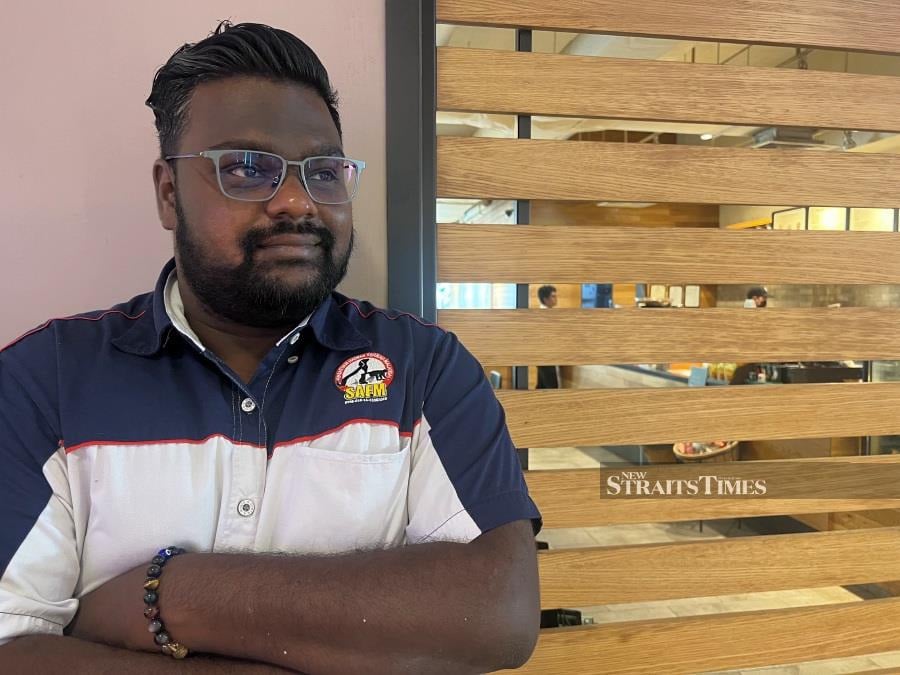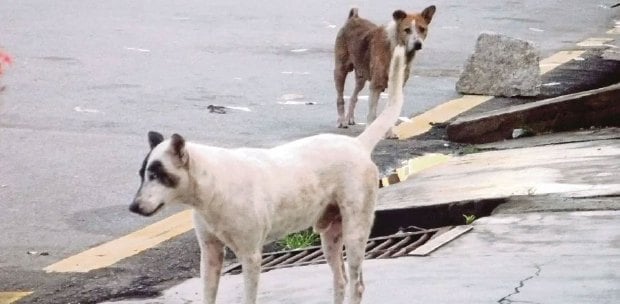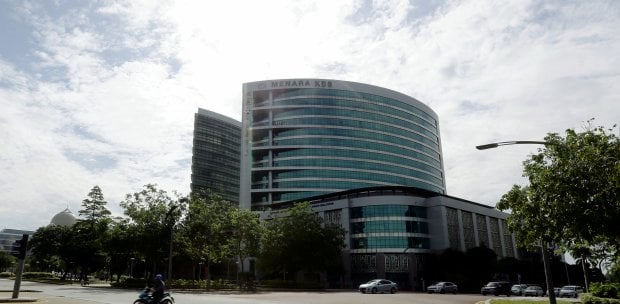THE young boy's heart swelled with compassion as he gazed at the little stray puppy, its eyes wide with hunger and fear. He couldn't resist the urge to help. With gentle hands, he reached out to the trembling creature, offering it a piece of bread that he had tucked away in his backpack.
His friends joined in, and they watched the puppy devour the food with grateful enthusiasm. In that moment, amidst the chaos of the construction site, a bond had formed between the boy and the puppy.
"I was just 11," recalls Kalaivanan Ravichandran, continuing: "I couldn't turn away from the puppy. Who else would feed it? So, my friends and I made a pact to keep feeding it with whatever we could sneak from home!"
Years later, the passionate and dedicated animal-lover would persist in feeding stray animals and advocating for their welfare. As president and founder of Persatuan Haiwan Terbiar Malaysia (SAFM), Kalai (as he's fondly known) has dedicated his life to ending animal cruelty and improving their welfare nationwide, drawing from years of experience as a stray animal rescuer and feeder.
"What does 'SAFM' stand for?" I ask, noticing that it's clearly not an acronym for his society. He smiles before replying: "It stands for 'Stray Animal Feeders Malaysia'. We were originally a group of feeders who provided food for strays, especially during the pandemic."
Continuing, he elaborates: "When we saw an increase in cases of animal cruelty and abandonment during the lockdown, we decided to formalise it into an organisation. We kept 'SAFM' in the name because it's already a well-known group!"
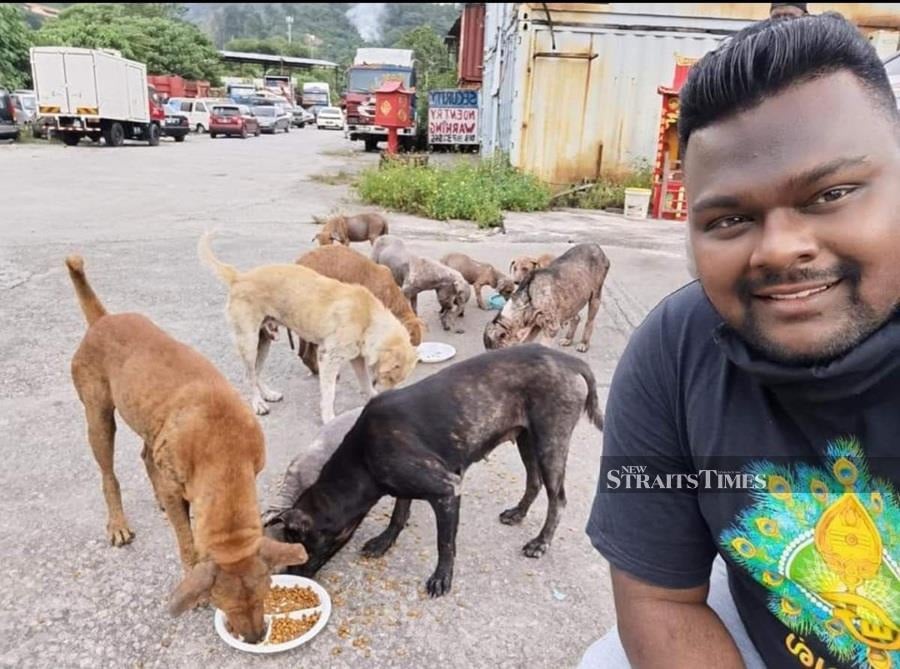
The cherubic 37-year-old may seem shy and retiring at first glance, but when the topic of animal cruelty arises, he suddenly becomes animated. His eyes light up with passion, and his usually reserved demeanour gives way to fervent expression.
"Did you know that you can't hurt an animal because it's against the law? If you kick it or traumatise it, you're breaking the law!" He goes on to explain that the Animal Welfare Act 2015, gazetted in December of that year, clearly outlines what constitutes animal abuse and violations of animal rights under the law.
He shakes his head and sighs.
"The law is clear, but the burden of proof falls on the witnesses of such cruelty. Why? Because animals can't speak for themselves," he laments, voice tinged with frustration. But then, with unwavering determination, he adds: "That's why I want to help these animals. If I don't do something, who will?"
It's a rhetorical question of course, but I get his point.
STRAY PROBLEM
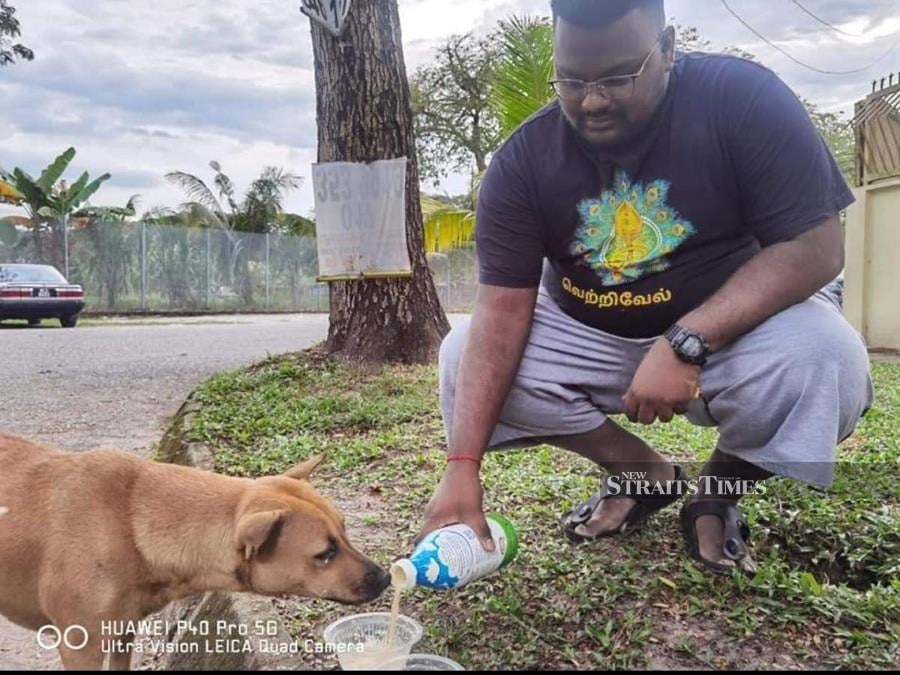
Stray animals have been receiving the wrong end of the schtick for as long as I can remember.
The controversy surrounding stray animals, particularly dogs, has sparked debates in the country, which often sees them as troublesome and hazardous.
The perception of stray dogs as a nuisance and threat is shared by many people irrespective of religious belief. The occasional instances of dog attacks further compound the challenges that stray dogs face, amplifying public anger and distrust towards them.
It's highly likely that a dog won't bite unless it feels provoked, unwell or in pain. In fact, a study by The American College of Veterinary Behaviourists, as reported in Psychology Today, suggests that dogs may not always seek physical interaction. However, they are inherently expressive and social creatures, often eager to communicate with us if we're willing to listen.
But fear and ignorance have led people to attack stray dogs, kill or take away their puppies, and call for their mass slaughter when cases of biting or attacks are reported.
Recently, the Shah Alam Municipal Council was taken to task over plans to cull stray animals following numerous complaints from the public that dogs were becoming a nuisance, including chasing children, scratching vehicles and killing cats.
Research indicates that culling doesn't effectively solve issues of stray overpopulation and the spread of zoonostic diseases like rabies. Instead, demonstrating compassion has been proven to yield positive results.
For example, in Turkiye, initiatives to vaccinate, feed and neuter stray animals have successfully managed populations and fostered liveable communities, where both street animals and people can coexist peacefully through humane management practices.
"Whenever I see stray animals, I feel a sense of pity knowing they struggle to find food," says Kalai softly. "It's heartbreaking to witness some people resorting to abusing and killing them indiscriminately."
What prompted Kalai to establish his organisation was a series of horrifying incidents. It all began with a viral video showing a man placing three cats in a washing machine and starting it, leading to their tragic deaths at a self-service launderette in Kepong, Kuala Lumpur.
"The next case," he recounts heavily "…involved another man who cruelly tied a stray dog to his lorry and dragged it to its death." Then, there was the appalling incident of a cat having its limbs severed. Another case saw a man tying a dog with a rope and hanging it from a tree until it died.
"These acts were so abhorrent that simply sharing a post on social media wasn't enough," he reflects. "I was angry. But anger by itself is ineffective. I had to turn that anger into something positive. I felt compelled to take action, to advocate for these animals and urge the authorities to punish those responsible."
These incidents prompted Kalai to delve deeper into animal law. "I discovered that while there are laws in place, enforcing them proved to be challenging," he explains.
Adding, he points out: "You're asked to provide visual proof to substantiate your reporting of animal abuse. 'Where's the video? Where are the photos?' These are the questions you're asked. Why? Like I said before… animals can't speak for themselves!"
ANIMAL LOVER
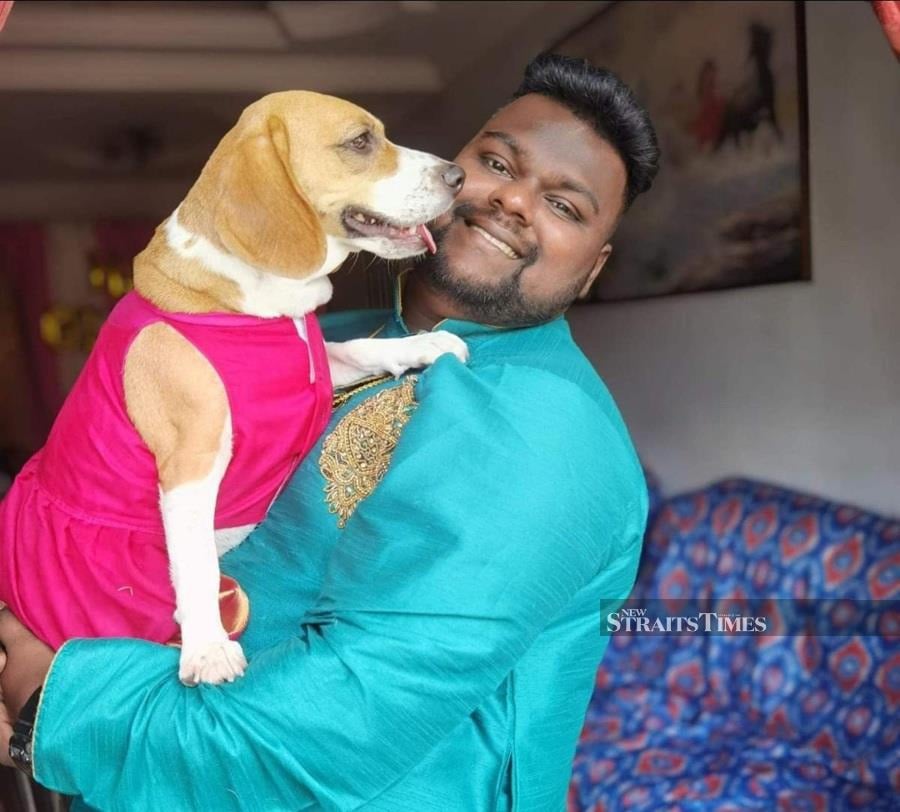
The Kuala Lumpur native reveals that his affection for animals has been a lifelong passion. Growing up in Pandan Indah, his father worked as a plumber and his mother was a promoter at a pharmacy.
He fondly remembers his father's habit of bringing home stray animals for him to care for. "Our house was always bustling with animals," he recalls, adding with a smile: "We had stray dogs, rabbits, fish and so many more. It was like a little zoo at home! I suppose I inherited my parents' deep affection for animals."
The young boy attended SMK Engku Hussein Semenyih before pursuing his diploma in information technology at Binary University in Puchong. Throughout his academic journey, his unwavering love for animals drove him to feed strays whenever he could.
"I love animals. I remember having brought back a puppy to my flat as a young boy when my parents weren't around. It caused quite a commotion when it escaped my flat and ended up 'visiting' my Muslim neighbours!" he confesses sheepishly.
After obtaining his diploma, Kalai spent several years working in the banking industry before venturing into entrepreneurship by running a barbershop. Unfortunately, the barbershop had to close during the pandemic.
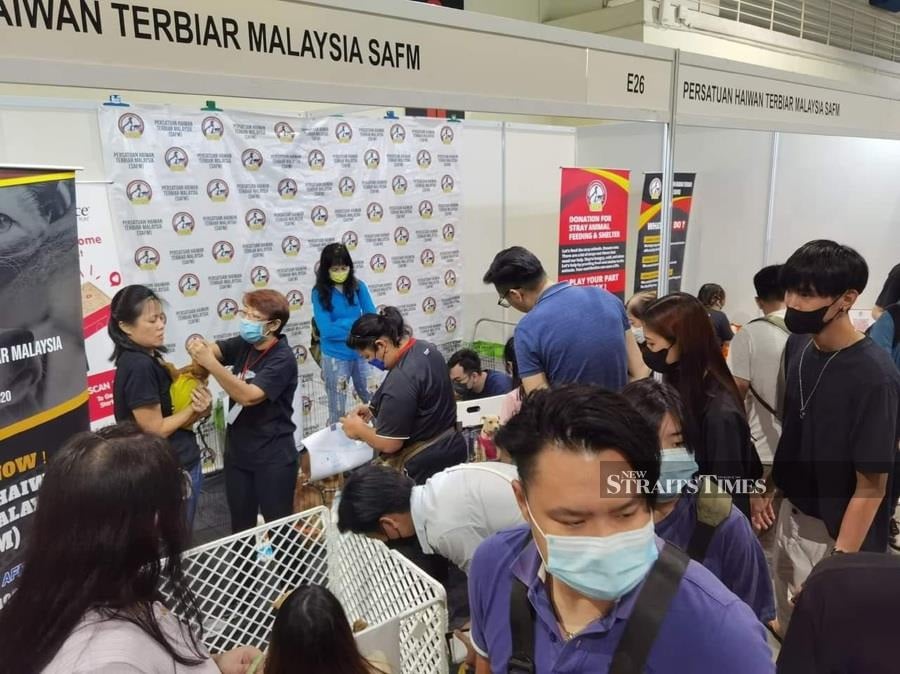
However, Kalai's enduring love for animals served as his anchor during these challenging times. Presently, he manages a diverse portfolio of businesses, including a pet taxi service, pet boarding facility, animal training services and serves as a marketing adviser.
Kalai also dedicated his time to volunteering in Persatuan Haiwan Malaysia, an animal advocacy group committed to raising awareness and educating the public about animal welfare.
Eventually, he was appointed as the head of its executive committee, with a specific focus on handling cases of animal cruelty. "Each state had its own committee members," he explains, "so if an abuse case was reported in a different state, the committee in that location would investigate and address the situation."
But soon, his own journey would take a significant turn.
Amid the 2019 Covid-19 pandemic, Kalai noticed the alarming plight of stray animals, exacerbated by lockdowns and food shortages. Motivated by compassion, he took action by forming a WhatsApp group consisting of fellow animal feeders.
"Feeding animals for nearly 15 years allowed me to connect with others who shared my passion," he reflects. "Ultimately, we came together to bolster each others' efforts, raise awareness and establish a robust volunteer network for feeding stray animals."
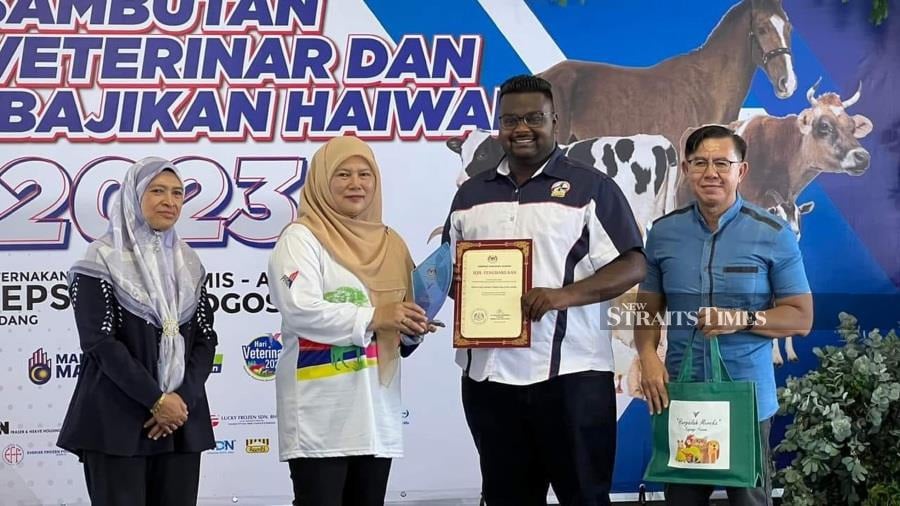
As the group expanded and gained recognition for their work, SAFM was born. "I felt that I needed to do much more," he says quietly, adding: "So, I left Persatuan Haiwan Malaysia and decided to focus on SAFM."
Under his leadership, SAFM quickly gained recognition for its efforts in combating animal cruelty and promoting animal welfare in Malaysia. In 2019, SAFM formalised its status as a non-governmental organisation (NGO).
There has been no looking back since.
SPEAKING FOR THE VOICELESS

Since 2019, Kalai has been an unyielding advocate against animal cruelty in the country, becoming a resonant voice for those who cannot speak for themselves. His efforts have stirred significant attention from the media and garnered widespread support for justice in cases of animal abuse.
Almost every month, news articles highlight him and SAFM's unwavering commitment to the cause. "Raising awareness and educating the public on how to deal with strays is key. It is possible to find a solution," he stresses.
For instance, he shares a story from Teluk Panglima Garang, Klang, where SAFM successfully trapped, neutered and released a stray dog back into the community. "From a stray dog, it became part of the community," he shares, adding: "It's not feasible to relocate it elsewhere, as that only worsens the problem."
Elaborating, Kalai continues: "When dogs are displaced, another pack will likely move in due to the abundance of food. And that would start the problem all over again." This method of trap-neuter-return helps to manage the stray population in a humane and sustainable way, allowing dogs to coexist peacefully with the community.
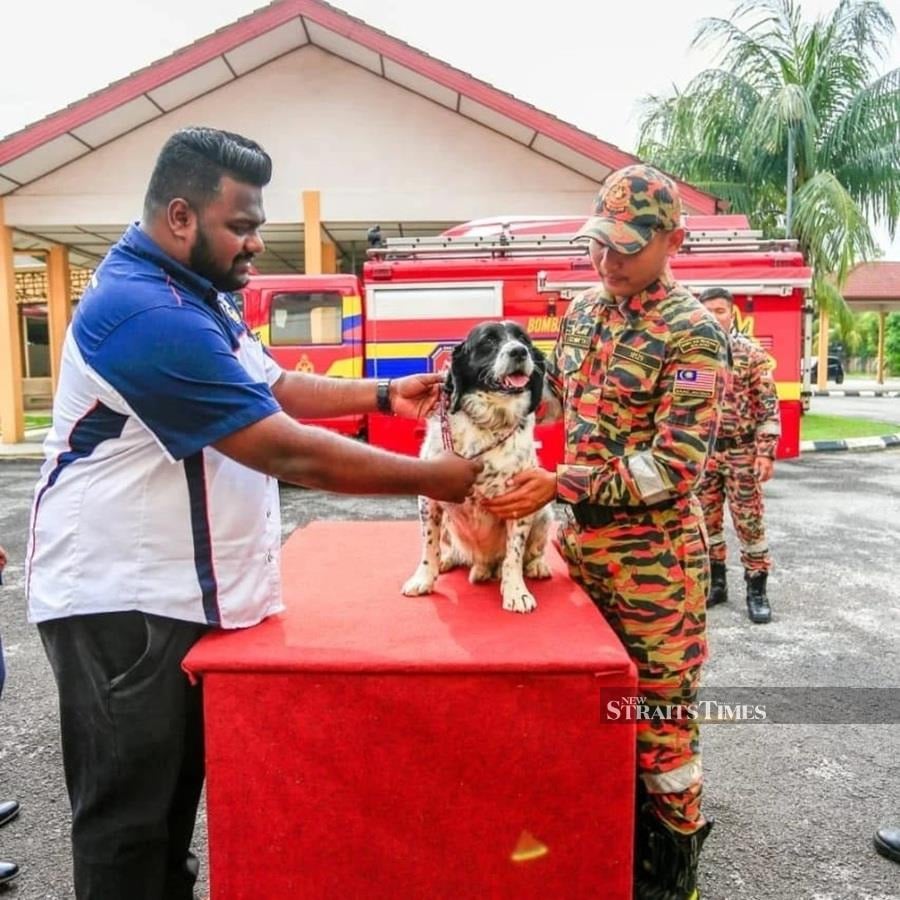
As the president of SAFM, Kalai has also spearheaded numerous impactful initiatives. He established five pet food banks in the Klang Valley and generously donated essential animal food during the pandemic.
In times of crisis, like the floods in Selangor, Pahang, Terengganu, and Johor, he led daring rescue missions to save stranded stray animals and provided assistance to pet owners in need, ensuring they had access to pet food.
For his exceptional dedication, Kalai was honoured with an award from the APJ Abdul Kalam People Welfare Organisation and also earned the esteemed title of Hero Pandemik. His unwavering commitment to animal welfare continues to ignite change and bring hope to the lives of animals throughout the country.
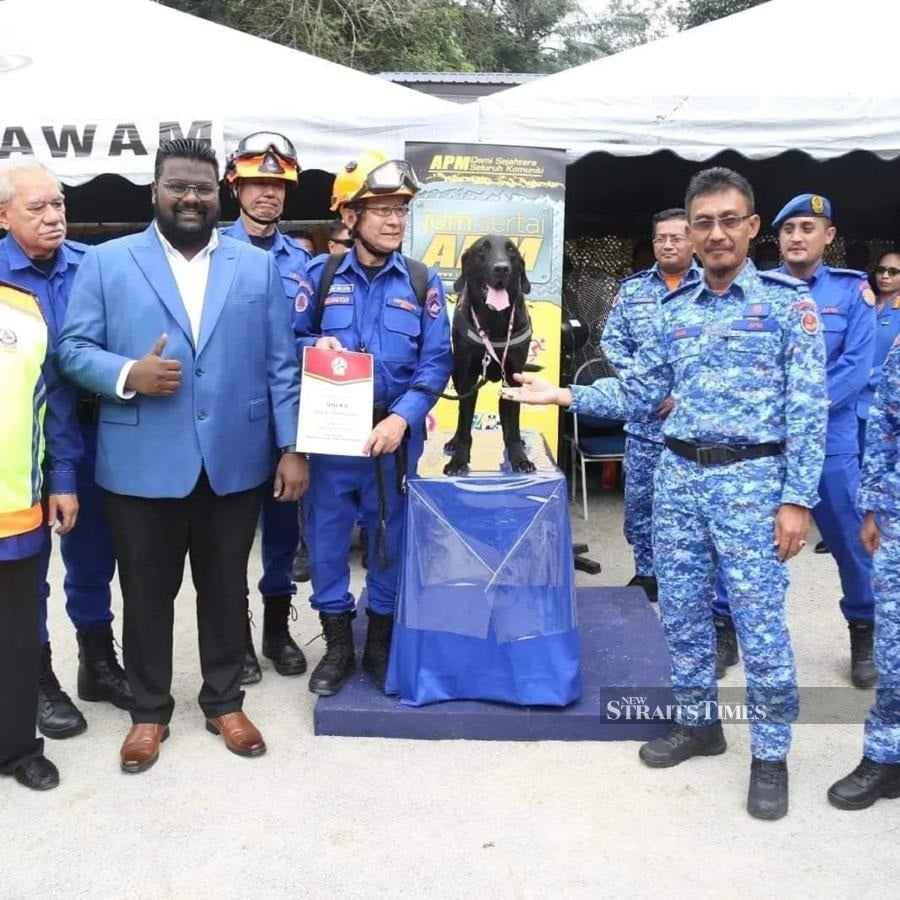
It's still incredibly challenging, he admits, confiding: "Sometimes, I feel frustrated when perpetrators of animal abuse manage to escape justice. While there are successes, they're unfortunately few and far between."
He recounts a specific incident where an animal abuse case was reported, but despite witnesses and video evidence, the Veterinary Department couldn't pursue the case due to lack of physical signs of abuse.
Tone wry, he says: "Just imagine… if it were a person who was abused, whether there were visible signs or not, the abuser would likely be apprehended. But unfortunately, it's not the same for animals."
But he's relentless about his work.
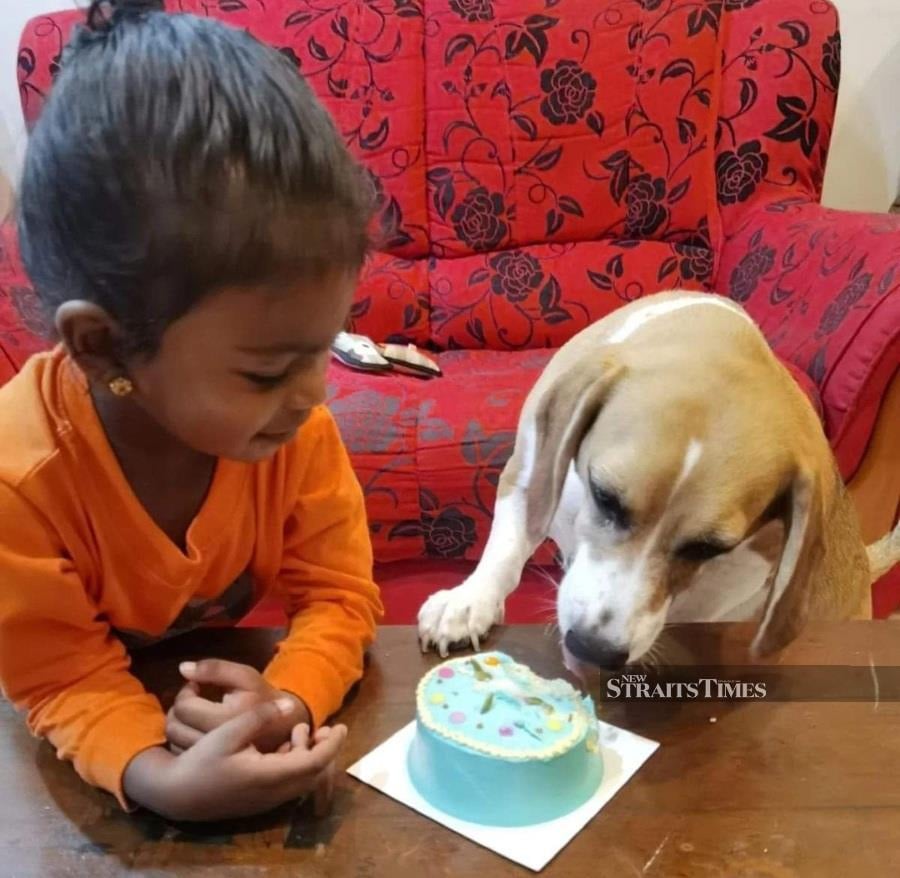
"The calls and messages flooding in from the public make it crystal clear: there's still a mountain of awareness to climb," shares the father of a 5-year-old daughter, who also shares his love for animals. "That's why I'm doubling down on my commitment."
In a world where every stray, abused or abandoned animal deserves a hero, who better than this unassuming man of action to rise to the challenge and be their voice?


